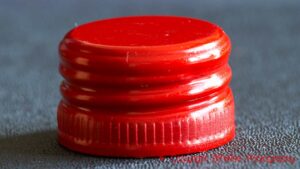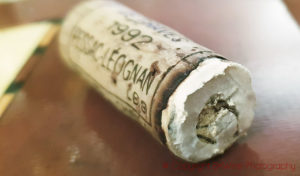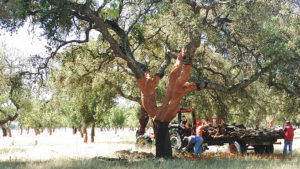
If only everyone used screw caps! Or not.
“Why don’t you use screw cap?” is a question that winemakers are often asked when people come and visit (especially if the visitors are Swedish! All Swedes – and many Britons – seem convinced of

“Why don’t you use screw cap?” is a question that winemakers are often asked when people come and visit (especially if the visitors are Swedish! All Swedes – and many Britons – seem convinced of
17 billion wine bottles were sealed in 2009. 11.3 billion (66%) used “natural” cork, 3.1 bn used screw cap, and 2.9 bn used synthetic corks. The by far biggest producer of ‘natural’ cork is Portugal.

The “natural” cork industry has made great strides this year to regain credibility with consumers. Consumer attitudes to natural cork and screw caps vary vastly from one country to another. For example, in Scandinavia (and
The English drinks magazine Off License News conducts a survey of consumer preferences for closures since a few years back. the question they ask is “What kind of closure do you prefer?” Last year screw
It might perhaps be a bit difficult to do yourself (but worth a try?), but a Portuguese designer has created a line of sexy (hmm, well) underwear made from cork. The sexy frills are created

Corked wines is still a problem. It is often the fault of the foul smelling chemical TCA. Even if the situation seems to have improved over recent years (fewer corked wines) it’s still a problem.

Cork in the bottle? Interview with Carlos de Jesus, marketing and communications director from Amorim, the worlds largest producer of natural cork. There has been a lot of criticism of cork in recent years, and
A study done by the consultancy firm PriceWaterhouseCoopers has shown that natural cork closures on bottles are the most environmentally friendly closure: synthetic (plastic) corks were deemed nine times more damaging to the environment and
This question has been more hotly debated since the screw cap arrived on the scene. According to a study at the faculty of oenology at the Bordeaux University the answer is yes. The study, made
A group of environmentally minded people have launched a petition to preserve and promote the natural cork, and in particular the forests that produce the cork bark. A change to screw cap risks damaging the
The restaurant Latour in new Jersey, has developed a machine (in collaboration with UC Davis) that can identify if a wine is corked or not – without opening the bottle! The machine takes a sample
Each year some 17 billion bottles of wine are sold. The way to plug the neck varies greatly from one country to another. Catherine Pivot at the Université de Lyon has collected statistics of the
No, at least for the moment that is unlikely. But the champagne growers’ association (CIVC) has created a project group to study alternative closures. They have done tests with synthetic corks and have concluded that
“Screw Corkers Unite!” could be the slogan. The purpose is to inform about the benefits of the screw cork and to be way for producers who use screw corks to collaborate. Michel Laroche, who was
“Innocork” is a new method to eliminate TCA contamination in corks (TCA is the substance that causes “corked wines”). The process has been invented by Cork Supply USA (CSU). They already produce 5 million Innocork
A Burgundian company (Embag with Gérard Michel and Laurent Villaume) has developed a cure for wines with cork taint. You pour the wine into a decanter and put a small plastic grape bunch in it.

“Why don’t you use screw cap?” is a question that winemakers are often asked when people come and visit (especially if the visitors are Swedish!
17 billion wine bottles were sealed in 2009. 11.3 billion (66%) used “natural” cork, 3.1 bn used screw cap, and 2.9 bn used synthetic corks.

The “natural” cork industry has made great strides this year to regain credibility with consumers. Consumer attitudes to natural cork and screw caps vary vastly
The English drinks magazine Off License News conducts a survey of consumer preferences for closures since a few years back. the question they ask is
It might perhaps be a bit difficult to do yourself (but worth a try?), but a Portuguese designer has created a line of sexy (hmm,

Corked wines is still a problem. It is often the fault of the foul smelling chemical TCA. Even if the situation seems to have improved

Cork in the bottle? Interview with Carlos de Jesus, marketing and communications director from Amorim, the worlds largest producer of natural cork. There has been
A study done by the consultancy firm PriceWaterhouseCoopers has shown that natural cork closures on bottles are the most environmentally friendly closure: synthetic (plastic) corks
This question has been more hotly debated since the screw cap arrived on the scene. According to a study at the faculty of oenology at
A group of environmentally minded people have launched a petition to preserve and promote the natural cork, and in particular the forests that produce the
The restaurant Latour in new Jersey, has developed a machine (in collaboration with UC Davis) that can identify if a wine is corked or not
Each year some 17 billion bottles of wine are sold. The way to plug the neck varies greatly from one country to another. Catherine Pivot
No, at least for the moment that is unlikely. But the champagne growers’ association (CIVC) has created a project group to study alternative closures. They
“Screw Corkers Unite!” could be the slogan. The purpose is to inform about the benefits of the screw cork and to be way for producers
“Innocork” is a new method to eliminate TCA contamination in corks (TCA is the substance that causes “corked wines”). The process has been invented by
A Burgundian company (Embag with Gérard Michel and Laurent Villaume) has developed a cure for wines with cork taint. You pour the wine into a
Newsletter:
Get our free monthly newsletter, the BKWine Brief and join 25,000 other wine and travel enthusiasts.
Text and images may not be used without our permission. More info on copyright.